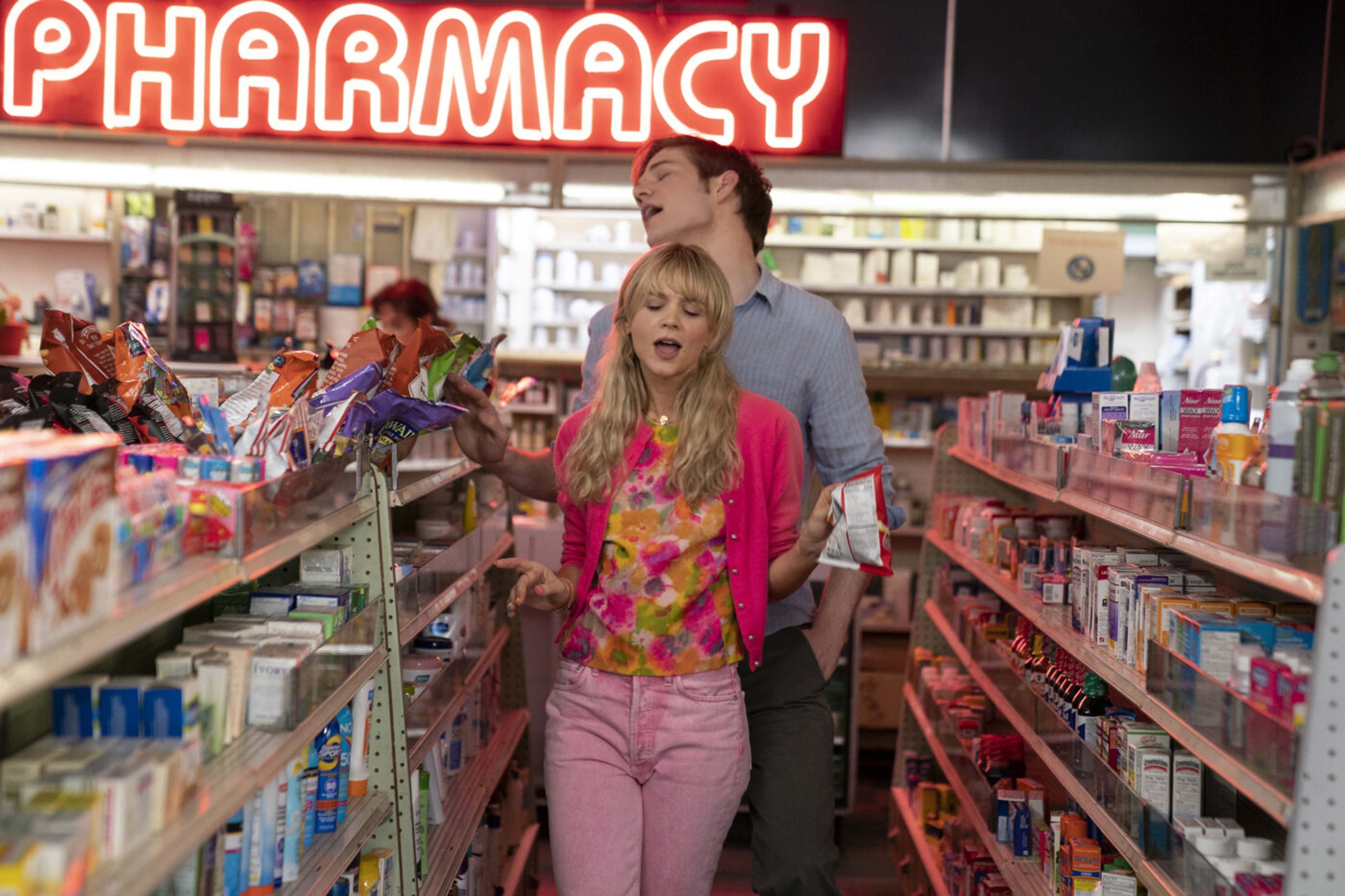Promising Young Woman exposes the dangerous myth of the ‘nice guy’
As Emerald Fennell wins an Academy Award for her controversial debut, Olivia Petter examines how the film challenges a societal trope that puts women at risk


Your support helps us to tell the story
From reproductive rights to climate change to Big Tech, The Independent is on the ground when the story is developing. Whether it's investigating the financials of Elon Musk's pro-Trump PAC or producing our latest documentary, 'The A Word', which shines a light on the American women fighting for reproductive rights, we know how important it is to parse out the facts from the messaging.
At such a critical moment in US history, we need reporters on the ground. Your donation allows us to keep sending journalists to speak to both sides of the story.
The Independent is trusted by Americans across the entire political spectrum. And unlike many other quality news outlets, we choose not to lock Americans out of our reporting and analysis with paywalls. We believe quality journalism should be available to everyone, paid for by those who can afford it.
Your support makes all the difference.Note: This article contains spoilers about the plot of Promising Young Woman
The men in Promising Young Woman are “nice guys”. They care about equality in the workplace. They’re friendly to baristas. They save children’s lives for a living. But they also put their hands up women’s skirts when they’re barely conscious. They try to perform oral sex on them when they’re practically passed out. And when they witness a sexual assault, they watch and jeer. But, as they’ll tell you over and over again, they’re “nice” guys. So how bad can they be, right? This is the question at the heart of Emerald Fennell’s polarising revenge thriller. And it’s what makes it a truly excellent film, despite what the critics say.
Consider the opening scene. Cassie, played by Carey Mulligan, is slumped on a banquette in a bar, appearing very drunk. Nearby, a group of men are bitching about a female colleague. Jerry, played by Adam Brody, defends her. He appears just as noble when, later, his friends start talking about how easily someone could take advantage of Cassie, and Jerry, ignoring them, tries to bring the conversation back to work. But his friends persist, and eventually Jerry goes over to “see if she’s okay”.
If you’ve seen the trailer, you’ll know what happens next. After apologising for his “a******” friends, Jerry takes Cassie back to his house, kisses her unmoving lips and moves his head in between her legs despite Cassie’s protests. It’s only when she reveals she was merely pretending to be drunk that he stops.
We see a similar narrative play out later, when Cassie is pretending to be drunk in the home of Neil, played by Christopher Mintz-Plasse, who, after forcing cocaine on her, tells an apparently bleary-eyed Cassie that he never understands why women wear so much makeup. “This soul-sucking system meant to oppress women is f***** up” he adds before putting his fingers in between her thighs. Later, when Cassie breaks character and questions Neil’s persistence, he replies: “I’m a nice guy”.
The “nice guy” myth has been increasingly examined in recent years. These men – kind, nerdy, feminist – are presented as an antidote to the patriarchy. They’re the ones that treat women with respect and call out sexism, unlike the “bad guys” – think Gossip Girl’s Chuck Bass, or Mad Men’s Don Draper – who brazenly treat women like disposable playthings. But as Fennell illustrates – like Cat Person author Kristen Roupenian did before her in the short story Good Guy – it’s dangerous to subscribe to these binary identities. Because, of course, it’s not just “bad guys” that do bad things. And believing that only makes “nice guys” more of a threat, because you don’t see them coming.
This point is astutely made in Promising Young Woman through the character of Ryan, played by Bo Burnham, a paediatrician who forms part of the film’s brief romcom trajectory in which he charms Cassie with his self-deprecating jokes and adorable persona. When Cassie says she loves him, Ryan gleefully exclaims that he’s going to buy her a bicycle. However, as we later find out, Ryan was one of the men who watched on and laughed as Cassie’s late best friend, Nina, was gang-raped when they were students at medical school together.
All things considered, then, it’s not surprising that when Cassie confronts the main perpetrator of the rape, Al Munroe, played by Chris Lowell, he, too, presents himself as a “nice guy”. Dressed as a stripper, Cassie handcuffs Al to the bed, explaining that it’s for her safety. Al insists this isn’t necessary: “I’m a gentleman,” he assures her. “Are you?” Cassie replies. “You might be surprised to hear that gentlemen are sometimes the worst.” Indeed, they are. Because five minutes later, this “gentleman” suffocates Cassie with a pillow between his legs.
Critics have been debating Promising Young Woman ever since it premiered at Sundance Film Festival in January last year. And while I agree that there is a dearth in character development, and yes, Cassie’s questionable behaviour (she kidnaps the teenage daughter of the dean of her medical school and tricks a friend into thinking she was sexually assaulted) does occasionally undermine her status as a female heroine, for me, none of this negates the power of Fennell’s underlying message.
It’s not just that women don’t see nice guys coming. It’s that, when they do bad things, they’re more likely to get away with it because society so often forgives them
You see, it’s not just that women don’t see nice guys coming. It’s that, when they do bad things, they’re more likely to get away with it because society so often forgives them. Fennell makes this point through strategic casting given that all of the male characters are played by actors famous for playing on-screen nice guys. Brody is best known for being the lovable Seth Cohen in The OC, Burnham is the friendly YouTuber-turned-filmmaker and doe-eyed Mintz-Plasse is famous for his dorky role in Superbad.
“If you’re making a movie about a complicated subject, it’s very easy to talk about this stuff when the people involved are people you don’t like or respect, or you’ve always thought were sleazy,” Fennell explains. “Where this subject matter is tricky is that these people you love and respect. The ones that people love, people tend to, rather than say, ‘I love this person, it’s a real shame that they do terrible things, but I love them!’ They say, ‘I love them so it can’t be true’.”
All this carries particular weight when it comes to discussions surrounding sexual violence. The film ends when Al is arrested for Cassie’s murder. This has been labelled a “loss for the cause” by critics, because she had to die in order to get justice. What’s more, Al faces retribution for murder, not rape, which can makes the film’s revenge narrative seem like it has fallen flat.
But here’s the thing. In real life, someone like Al would have at best likely seen a lenient sentence due to his good guy persona, as we've seen in many rape cases. And had it not been for the video Cassie was given (such evidence is rare), he probably would never have been convicted at all. As for Nina, who it is implied took her own life, she would have been made to feel like what happened was her fault thanks to a lawyer like Jordan Green (Alfred Mollina), whose job in the film it was to convince victims not to press charges against his clients.
Despite its bubblegum aesthetic, Promising Young Woman is a film that presents viewers with a very brutal reality. You only have to look at a handful of statistics on violence against women to see this. We know, for example, that victim-blaming is a tactic used to vindicate perpetrators of sexual violence in court. We also know that only around 15 per cent of those who experience sexual violence in the UK report to the police. And we know that conviction rates for rape are far lower than other crimes, with only 1.7 per cent of reported rape cases in England and Wales ending in a conviction for the perpetrator.
Promising Young Woman might not be a perfect film. But to me it is, at the very least, a rare and necessary piece of social commentary that subverts expectation and examines one of the many myths that contributes towards a culture that perpetuates violence against women. That’s something we should never stop interrogating.



Join our commenting forum
Join thought-provoking conversations, follow other Independent readers and see their replies
Comments